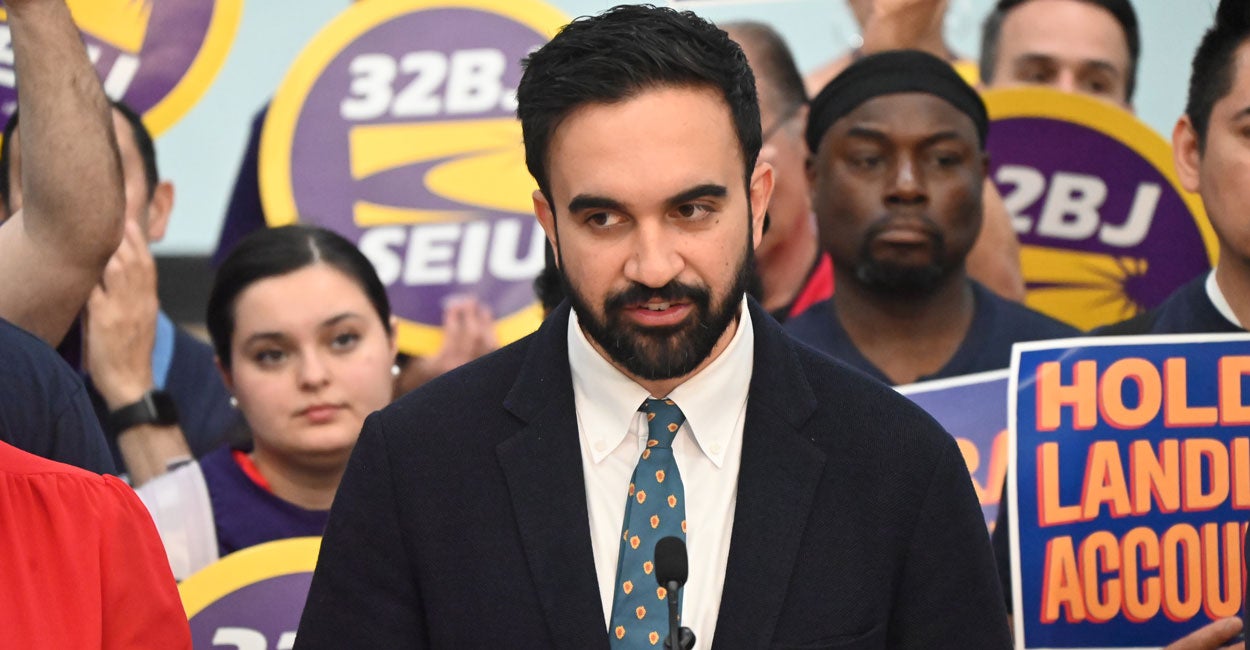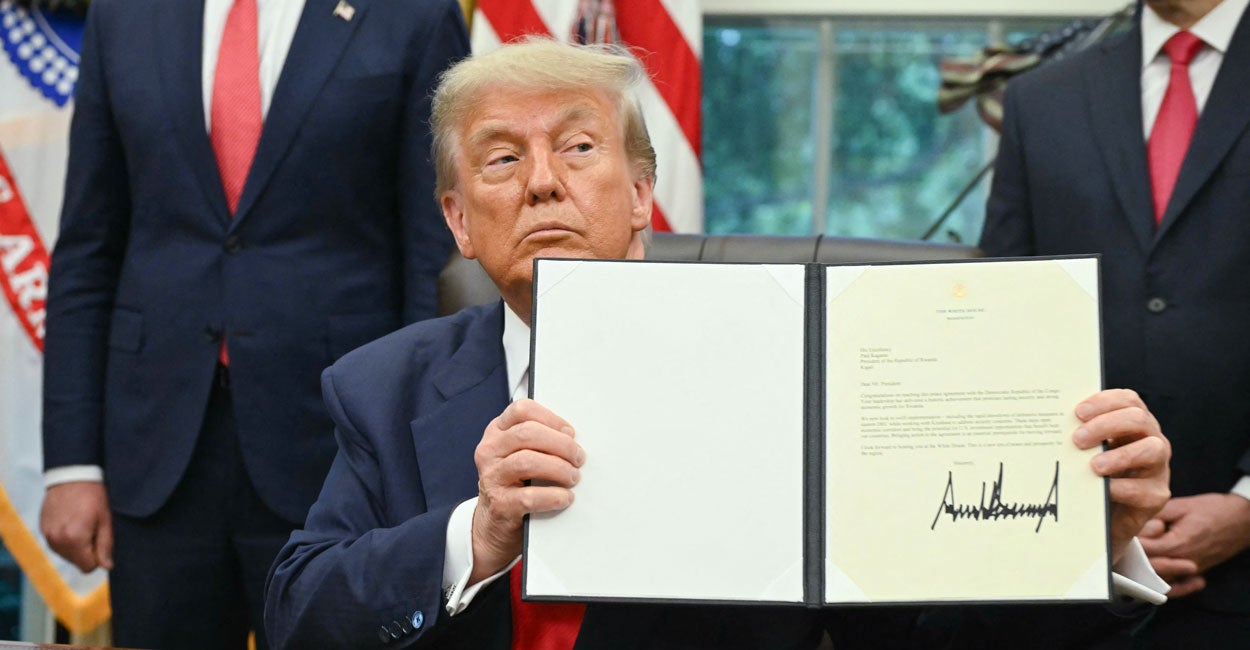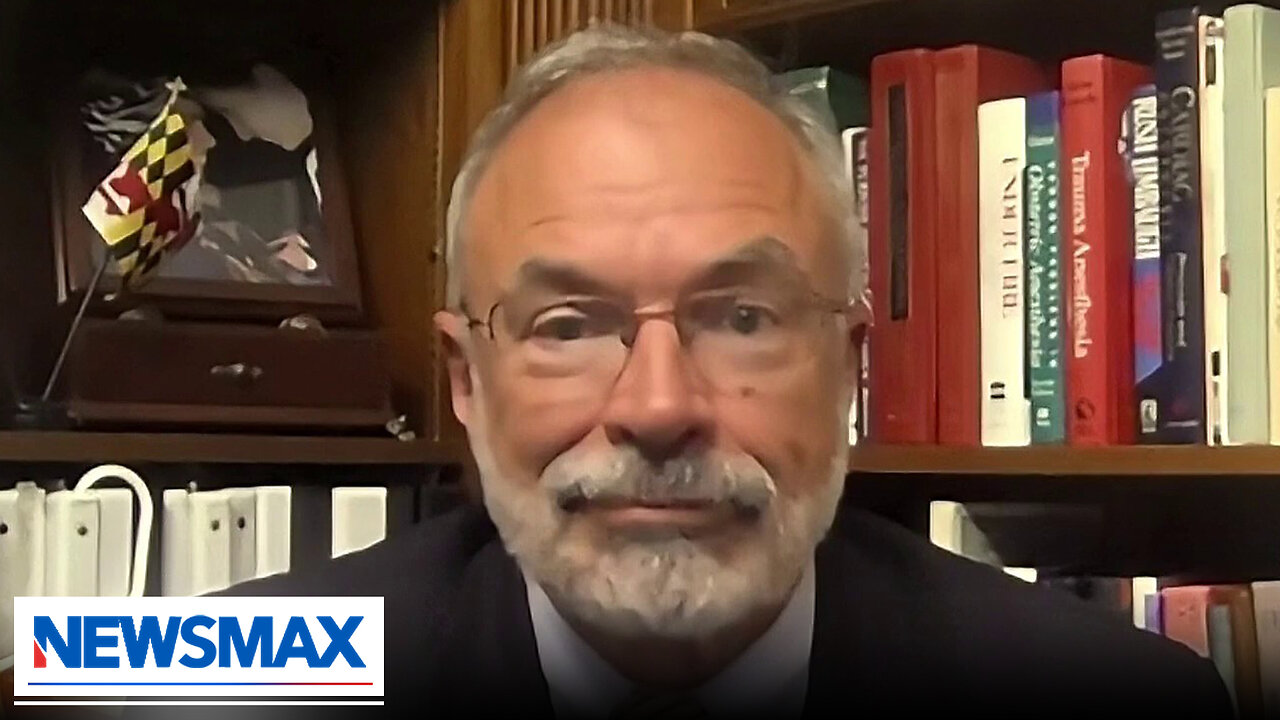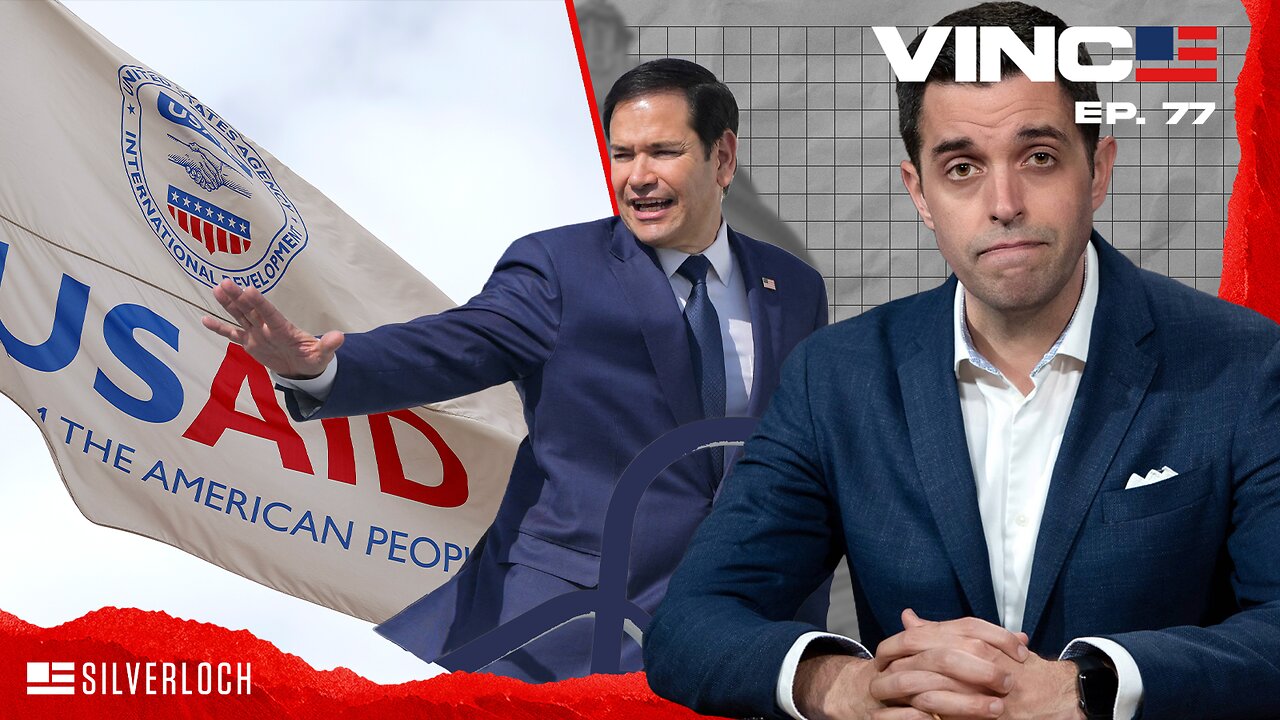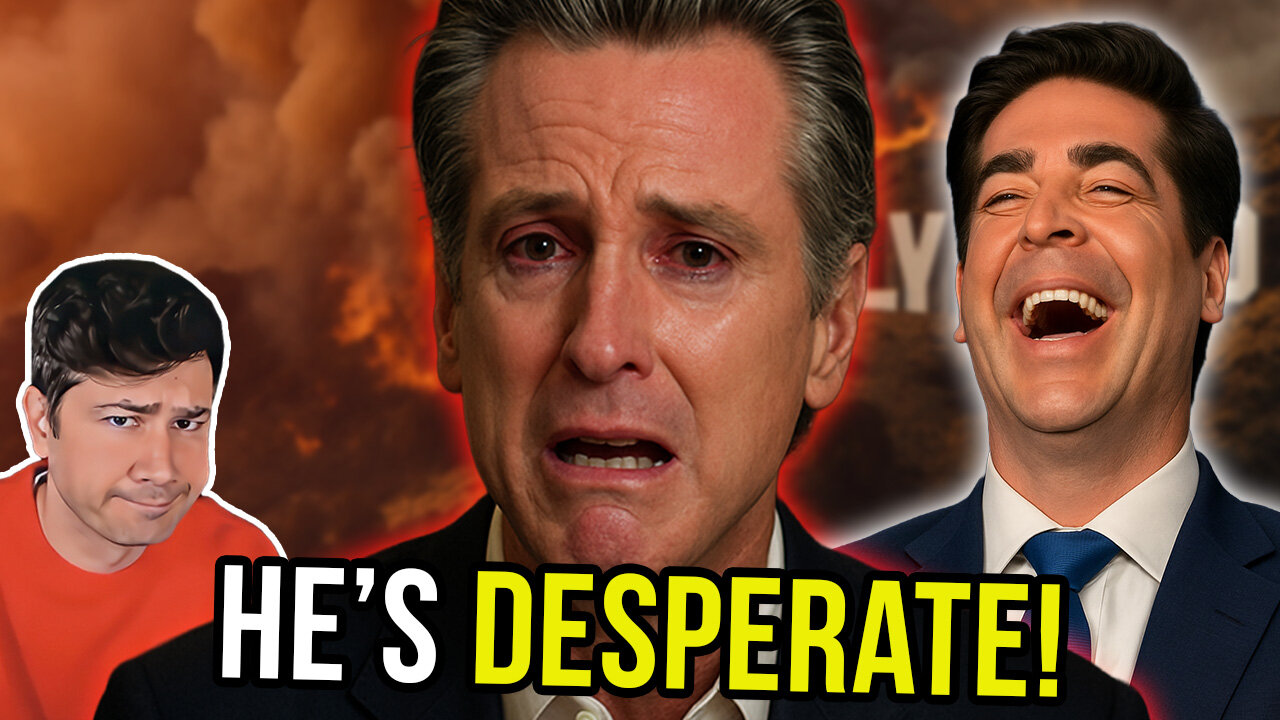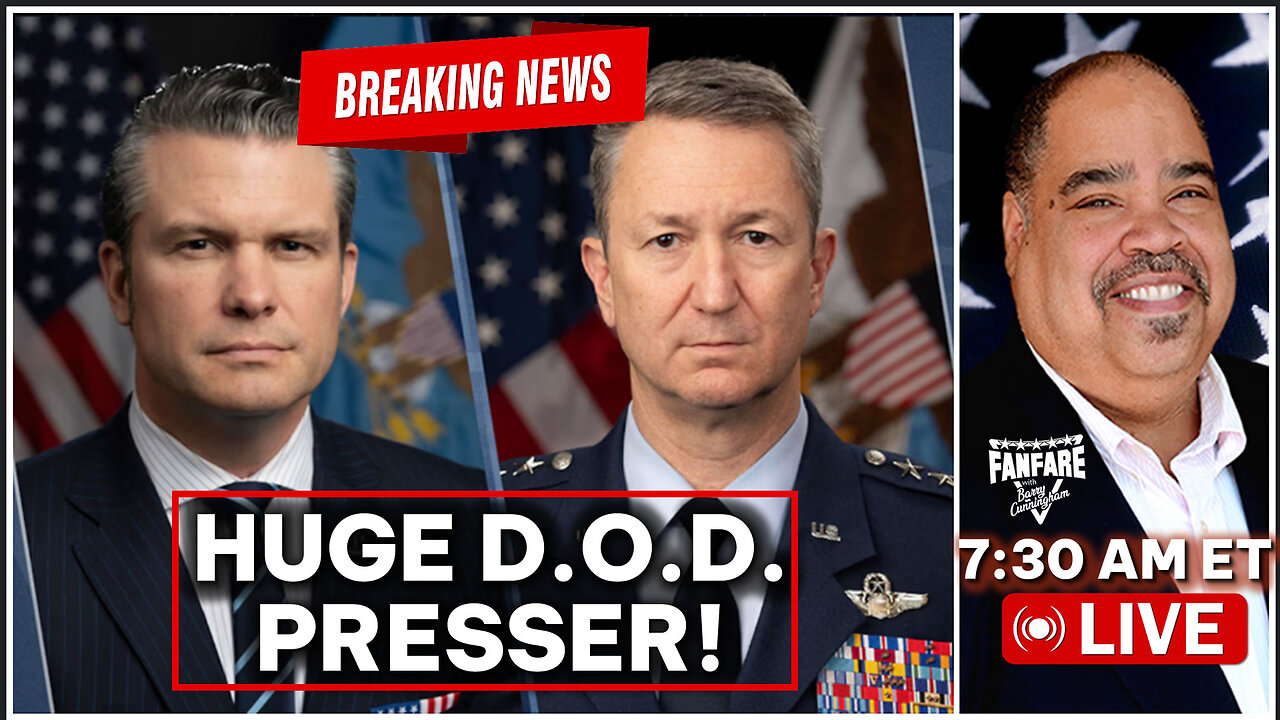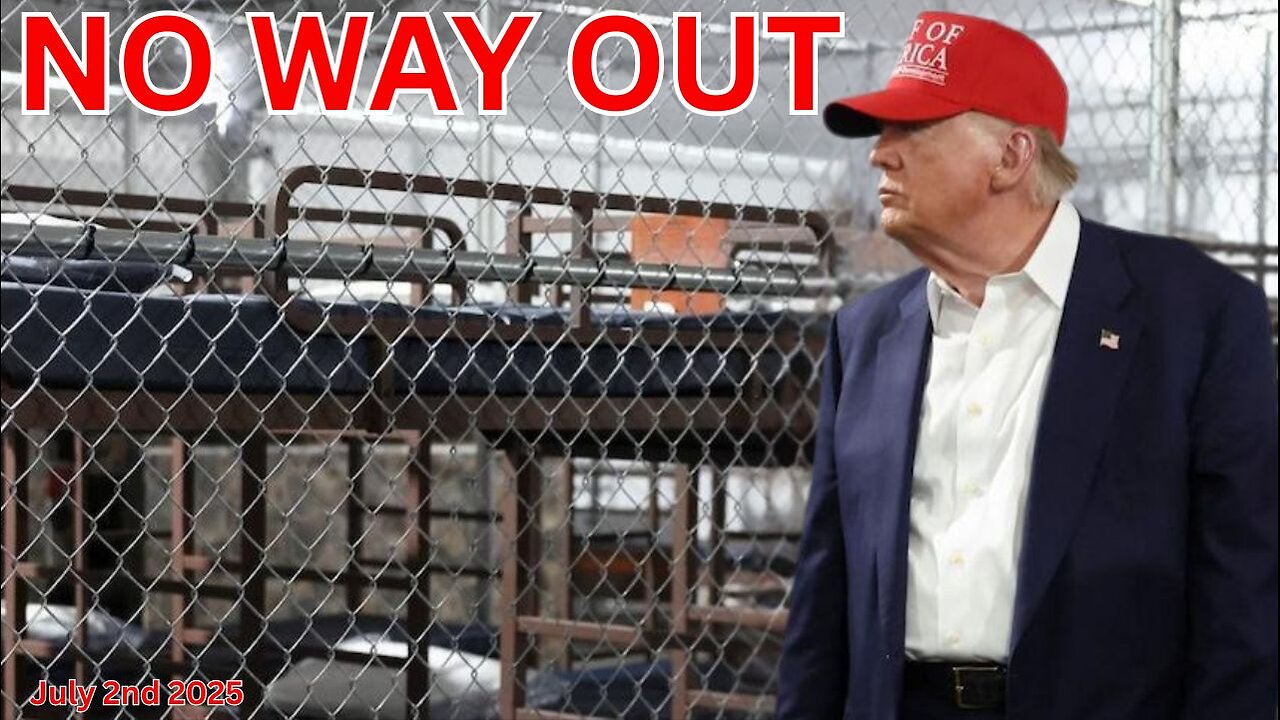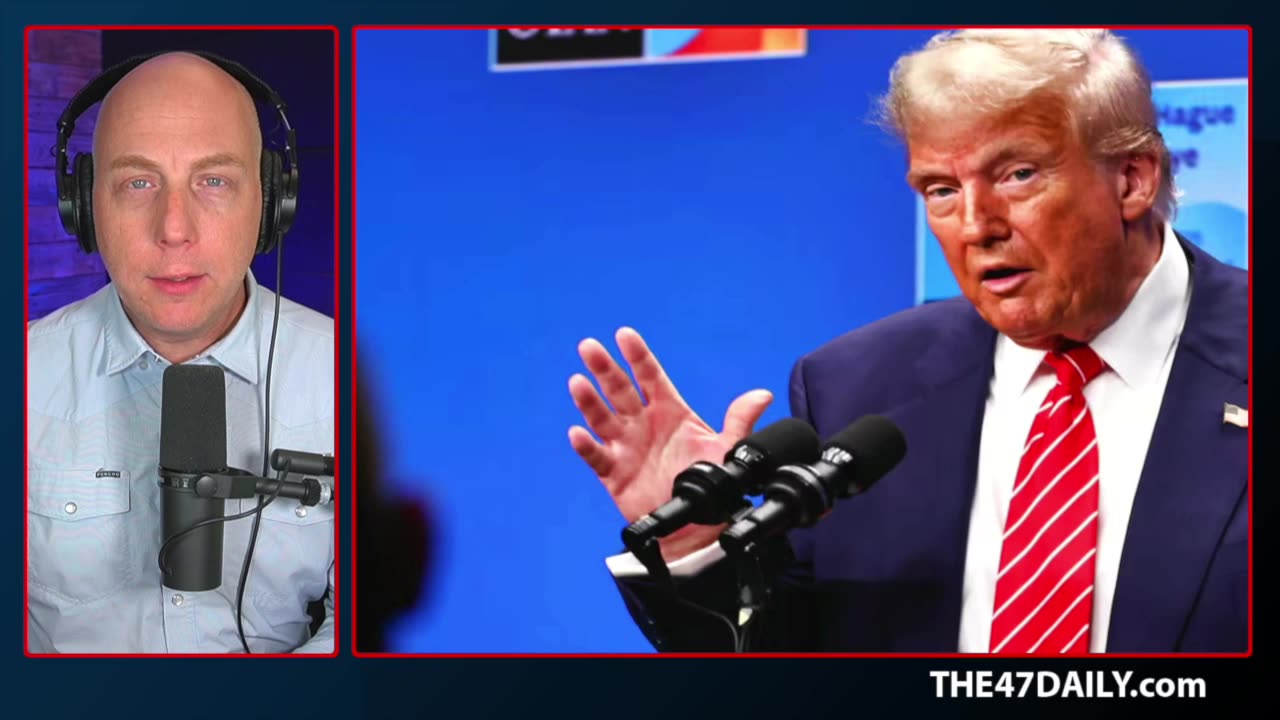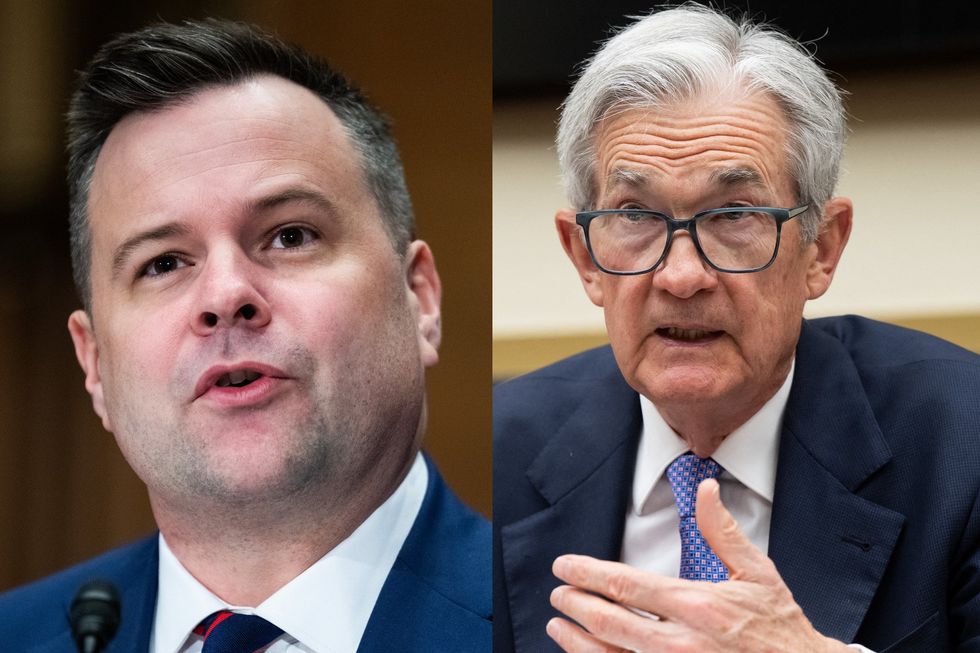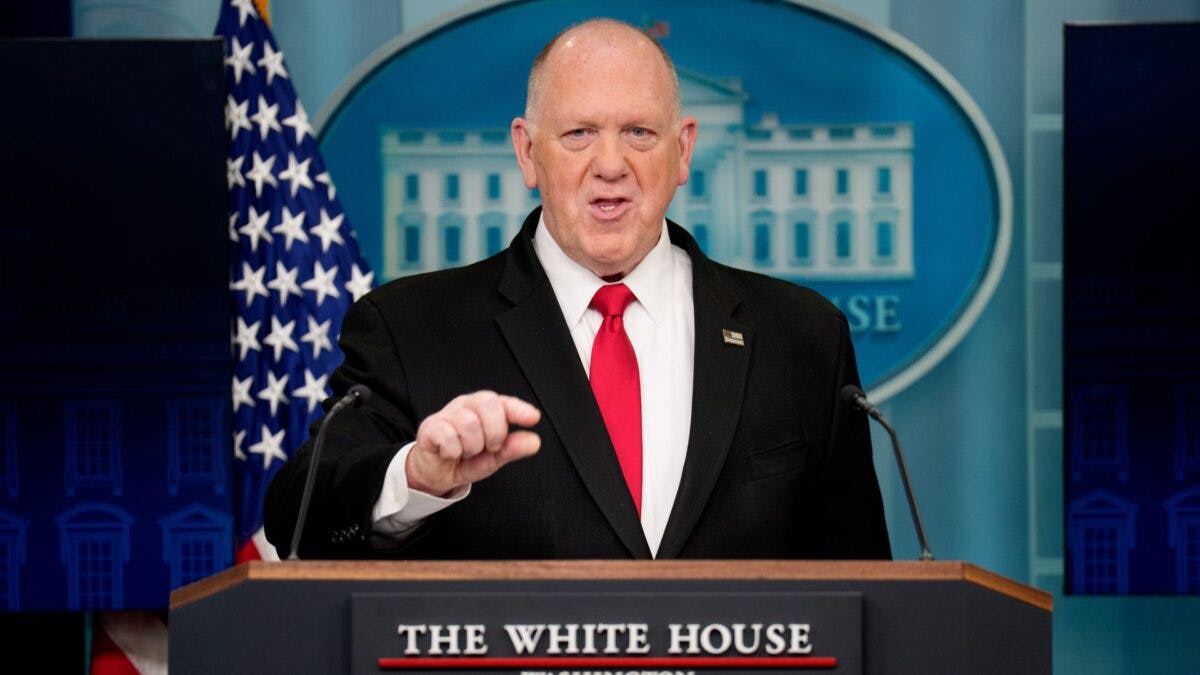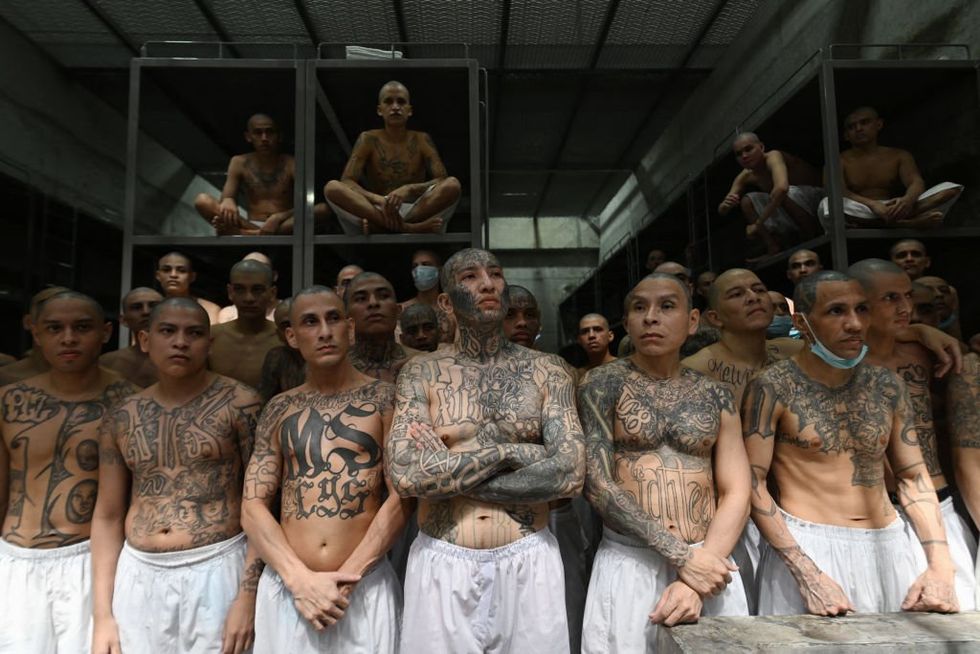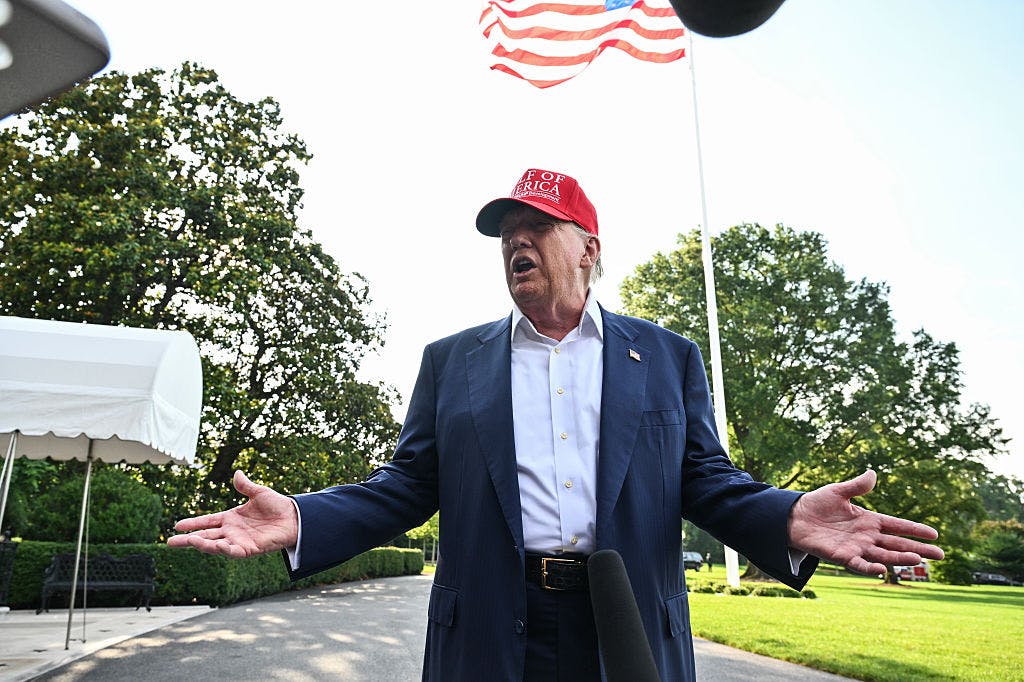Here’s Why a Judge Can’t Block Trump’s Pause on Spending
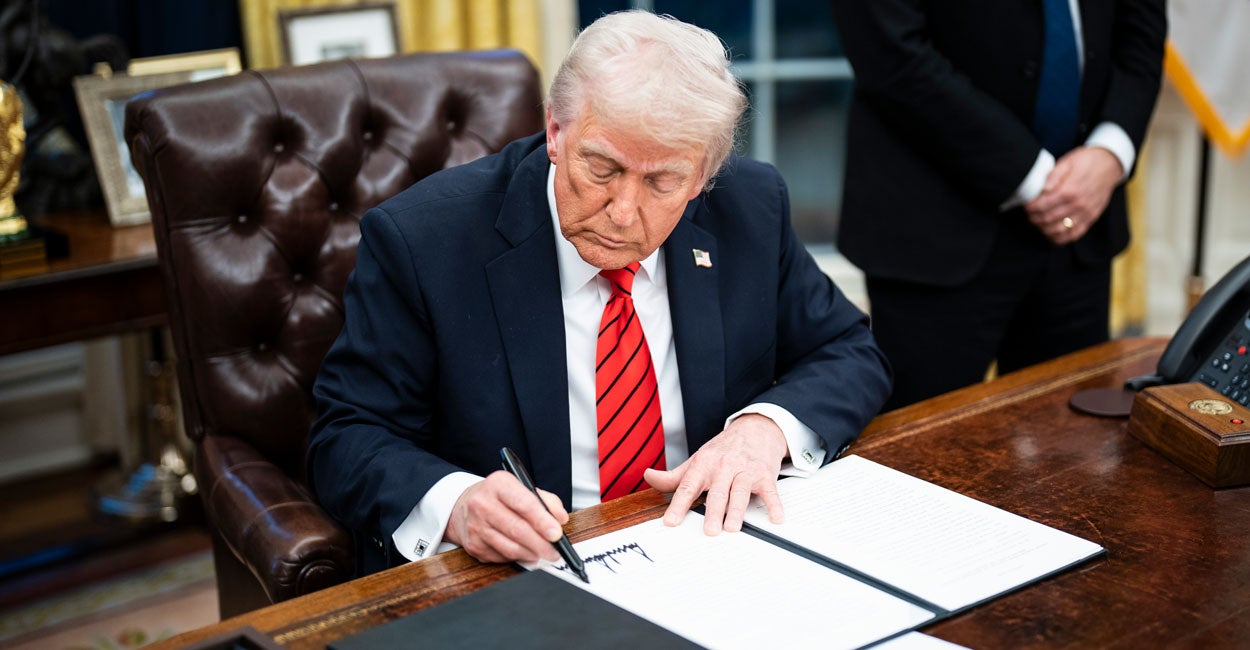
Shortly after taking office, President Donald Trump, quite sensibly, paused some federal spending programs to see whether they are lawful and advance America’s interests, which he had promised voters he would do. That temporary delay, however, set off a firestorm among the liberal states and organizations that, as recent disclosures have revealed, have benefited immensely and unjustifiably from the government’s largesse.
Some states and the District of Columbia convinced a federal district judge to temporarily block Trump’s spending pause, arguing (quite hyperbolically) that the pause would irreparably harm “the social fabric of life” in their jurisdictions. In just a few days, and without full briefs from the parties, Chief Judge John McConnell of the District of Rhode Island concluded that this spending pause was unlawful, because no statute authorizes the president to delay the disbursement of congressionally appropriated funds, the pause was arbitrary and capricious under the Administrative Procedure Act, and it is unconstitutional because Congress has the spending power, not the president.
On Jan. 31, McConnell ordered the Trump administration not to “pause, freeze, impede, block, cancel, or terminate” any grants to the states “except on the basis of the applicable authorizing statutes.” McConnell also seemed to extend his order beyond the states that sued and barred the administration from pausing any “federal financial assistance programs” that the administration had previously paused. The order is not an exemplar of clarity, so McConnell’s precise intent is unknowable.
A few days later, the states filed an emergency motion complaining, among other things, that the administration was still pausing the distribution of grants to certain nonparties to their suit, like Brown University and the University of Washington. Just three days after that, and again without full briefing, McConnell granted the motion and clarified that he did, indeed, mean to stop the administration from “any federal funding pause.” His order applied not only to any recipient of federal funds (not just the states that sued), but it also prevented all departments, agencies, and institutes within the federal government from pausing funding as well (even if they had not been sued).
Trump responded by saying that, “When a president can’t look for fraud and waste and abuse, we don’t have a country anymore.”
Much of what the Department of Government Efficiency has revealed about government spending during just its first few weeks investigating the government’s books underscores his point. Besides $100 million for diversity, equity, and inclusion programs from the Department of Education, DOGE has found that the United States Agency for International Development has spent millions on “LGBTQI+” in Guatemala and Serbia, a DEI musical in Ireland, a “transgender” opera in Colombia, and “transgender” comic books in Peru.
It has sent hundreds of millions of dollars to Gaza and the West Bank without any assurance that it would be kept from Hamas terrorists, hundreds of millions to the Wuhan Institute of Virology (which unleashed COVID-19 on the world), and hundreds of millions to Afghanistan and into the hands of the Taliban.
Domestically, the federal government has funneled billions to left-wing causes with minimal oversight and no accountability to the American voters. But McConnell has shielded these grants from the president’s review.
As Vice President JD Vance commented, “If a judge tried to tell a general how to conduct a military operation, that would be illegal. If a judge tried to command the attorney general in how to use her discretion as a prosecutor, that’s also illegal. Judges aren’t allowed to control the executive’s legitimate power.” He has a point.
The administration immediately appealed, and that appeal is pending. In the interim, Trump indicated that he will comply with the court’s order but added that what McConnell has “done is he’s slowed down momentum [which] gives crooked people more time to cover up the books.”
There’s a lot wrong with what McConnell has done, to put it mildly. A swift rebuke from an appellate court is due.
Begin with the standard that he applied to the states’ request for an emergency injunction. Emergency injunctions are dramatic remedies that, as the Supreme Court cautions, should not be readily granted. Judges don’t have the time to consider the issues in detail, and an emergency injunction wrongly given can impose major hardship on a defendant, even the federal government, because funds improperly disbursed and spent might be extremely difficult, if not impossible, to claw back.
While it is true that an injunction wrongly denied also can impose serious hardship on a plaintiff, the balance that the Supreme Court has struck is to put the burden of persuasion on plaintiffs. They must show that they are likely to win when the court considers the issues fully and that they are likely to suffer irreparable harm in the meantime.
The defendant does not have to prove anything. The defendant is entitled to a presumption of lawfulness and regularity until the plaintiff carries its burden by proving otherwise. And yet, McConnell said that he would assume “the worst-case scenario” about Trump’s spending pause. Why? Because McConnell found the pause “broad” and “ambiguous.” But nothing in Supreme Court case law creates a “breadth and ambiguity” exception to the usual process for getting an emergency injunction. That was mistake No. 1.
There is, however, a “breadth” limitation on McConnell’s injunction power. McConnell claimed the power to extend his injunction from the plaintiff states to nonparties to the suit. But this is far more power than the Constitution gives to federal judges. As we have argued elsewhere, no law gives federal judges the power to issue “universal” relief or “nationwide injunctions.” That is, however, what McConnell has done. And in so doing, he has claimed for himself the power to set nationwide policy, which the Constitution denies to his branch of government. That was mistake No. 2.
On either of those bases, the injunction ought to be vacated. But there is more.
Consider next how the court reframed the issue to knock down a straw man. The administration’s temporary pause is just that—a temporary pause. But the court consistently recharacterizes it as a “unilateral suspension,” the imposition of “certain conditions” on funding, a “refusal to disburse” funds, and an “indefinite pause.” At least once, the judge puts “pause” in quotations marks to reveal that he doesn’t believe that the pause is, in fact, a pause at all.
But again, the plaintiffs have the burden, and they offered no evidence suggesting that the temporary pause is something else. In other words, the plaintiffs had the burden of proving that any injury from the delayed receipt of federal funds was irreparable, and (other than the case of federal disaster relief) the district court did not specify how that was true. That was mistake No. 3.
Timing provides two more problems for McConnell.
McConnell claims that the pause violates the Administrative Procedure Act, which prohibits “final” federal agency actions that are “arbitrary and capricious.” How can a temporary pause be a final action? The district court did not say. The court did not point to any statement by the relevant agencies that the action was final, and McConnell did not explain why that was true despite the agency’s failure to admit it. Mistake No. 4.
In addition, his conclusion that the pause violates Congress’ appropriations is highly questionable. For starters, Congress did not direct the president to direct his executive agencies to disburse these funds to particular entities by a date certain within the current fiscal year. Moreover, there is a strong argument to be made, and which the administration has already indicated it intends to raise, that Article II of the Constitution vests the president with implied power to impound funds that have been appropriated and that the Impoundment Control Act of 1974, which restricted a president’s ability to impound funds, is unconstitutional.
Consider the Inflation Reduction Act, signed by then-President Joe Biden, which is the source of many of the grants the plaintiffs complain about. A quick review of the appropriations in that 725-page act reveals that the appropriations are authorized to be disbursed by the executive through the end of the fiscal year. The government’s fiscal year ends on Sept. 30, which means that even a seven-month-long pause would still be within the law.
In other words, the plaintiffs have cited no constitutional requirement that federal agencies are to distribute the Inflation Reduction Act funds immediately or on any particular date prior to the end of the current federal fiscal year. The agencies, therefore, would be acting lawfully if they distributed the assigned funds in a lump sum on the last day of the fiscal year. While that might be inefficient (and a bit tacky), it would not be unlawful. And if the administration ultimately prevails in its argument that the president has the constitutional authority to impound funds, he would be acting lawfully if ultimately disburses only some, or none, of the assigned funds.
Put simply, the power of appropriation has long been understood to be the power to place a ceiling on executive spending, not a floor. Therefore, it cannot be true that a pause in February violates the law. Mistake No. 5.
Two other factors are relevant in this regard. One is that the federal government is now operating under a continuing appropriations resolution that will expire in March 2025. The second is that Congress and the executive branch are currently considering whether to pass a budget reconciliation bill that could repeal funding provisions in current laws where the funds have not yet been disbursed.
No one has a constitutional right to receive federal funds for any purpose—even for medical care—so Congress or the president could end up deciding not to disburse funds that were previously appropriated. That is a political issue to be resolved by the executive and legislative branches, not by a single federal judge sitting in Rhode Island.
McConnell made another egregious error. He assumed, without explanation, that the president has no power to pause spending unless some federal law allows him to do so. But when Congress gives power to the executive branch, especially with no deadline other than “the end of the fiscal year,” it necessarily implies a grant of some discretion. What’s more, each branch of our government has a duty to consider the constitutionality of its actions, even when it wields power delegated to it by another branch. In that regard, the Office of Legal Counsel in the Department of Justice asserted in 1988 that “there may be instances in which [the President] may impound even in the face of a Congressional mandate to spend.”
Trump, for example, has a duty to make sure that none of the funds Congress has given him to disburse are spent on the sort of unconstitutional, racially discriminatory programs that were so popular with the Biden administration. A temporary pause is the only way that a president could conduct that necessary review to ensure taxpayer funds are not being unconstitutionally spent.
For example, it has long been public knowledge that the federal government gives billions to universities that racially segregate dorms, graduation ceremonies, and student resources. Elon Musk’s Department of Government Efficiency, meanwhile, has already uncovered more than $100 million of Department of Education grants for diversity, equity, and inclusion programs, many of which tend to be racially discriminatory, in violation of federal civil rights statutes and the Constitution. The government cannot lawfully continue giving such grants, and the president would be fully justified in withholding such funds.
As constitutional law professor John Yoo writes, “Presidents since the time of Thomas Jefferson have refused to carry out appropriations,” and “the constitutionality of such impoundments depends utterly on the reason.”
At a bare minimum, Congress cannot escape constitutional limits on its spending power by passing the buck to the president because, as the Supreme Court has said many times, “What cannot be done directly cannot be done indirectly.” There are reasonable arguments that the president’s power to impound funding goes even further, but McConnell did not consider any of them.
Emergency appeals are appropriate—including, if necessary, a petition to the Supreme Court for relief. And it would be appropriate to aggressively lobby Congress to make it clear that, whatever the state of Supreme Court precedent is, Congress intends to give the president discretion over at least some sorts of spending.
There is much to criticize in the district court’s ruling and little to defend it. The injunction ought to be quickly and roundly reversed.
The post Here’s Why a Judge Can’t Block Trump’s Pause on Spending appeared first on The Daily Signal.
Originally Published at Daily Wire, Daily Signal, or The Blaze
What's Your Reaction?
 Like
0
Like
0
 Dislike
0
Dislike
0
 Love
0
Love
0
 Funny
0
Funny
0
 Angry
0
Angry
0
 Sad
0
Sad
0
 Wow
0
Wow
0
